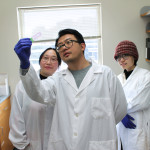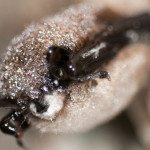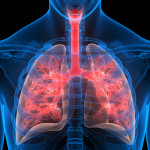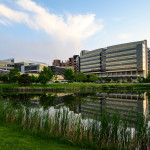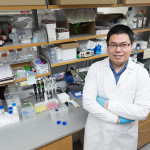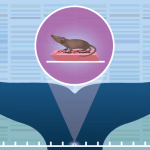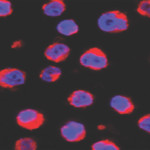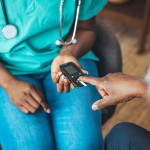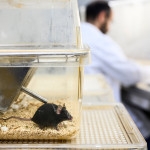Tag School of Medicine and Public Health
Medical students celebrate a star-studded Match Day 2025
Each year, on the third Friday in March, medical students nationwide learn where they have been placed for clinical residency training programs for most specialties. This year's Match Day shined a light on "service," with a little sprinkling of awards show-style. Read More
Dr. Nita Ahuja named dean of UW School of Medicine and Public Health
Ahuja is a cancer-care innovator whose treatment approaches and research have garnered international recognition. She’s also a proven leader and administrator with a track record for bringing multidisciplinary teams together to solve health care challenges. Read More
UW researchers find previously unknown links between microbial bile acids and the risk of colon cancer
A team of UW–Madison scientists have uncovered that bile acids produced by the liver to help digest food may affect our risk for developing colon cancer. Read More
A stealth fungus has decimated North American bats but scientists may be a step closer to treating white-nose syndrome
Scientists have discovered how an invasive fungus that colonizes the skin of hibernating bats gains entry and covertly hijacks cells, taking an important step toward treatment of white-nose syndrome. Read More
UW–Madison leading new research collaboration aimed at treating lung scarring diseases
An interdisciplinary group of researchers will will investigate the biological processes that promote lung scarring. With the aid of artificial intelligence and advanced 3D modeling, they will also develop and refine new imaging techniques and drug delivery systems that could aid in halting its progression. Read More
Search begins for next dean of the School of Medicine and Public Health
A search committee has been appointed to help identify and select candidates to be the next dean of the University of Wisconsin School of Medicine and Public Health and vice chancellor for medical affairs. Read More
Pancreatic cancer is difficult to treat. Nano-drugs hitching a ride on bacteria could help.
Mice treated with the therapeutic-laden bacteria experienced delayed tumor growth and significantly longer survival compared with mice that received other treatments. Read More
Three honored for innovation, entrepreneurial excellence
Mark Bakken, James Dahlberg, and Dorri McWhorter received the 2024 Chancellor’s Entrepreneurial Achievement Awards. These entrepreneurs exemplify the Wisconsin Idea — UW–Madison’s longstanding commitment to benefiting the world beyond the boundaries of campus. Read More
Some lymphomas become resistant to treatment. Gene discovery may offer path to overcome it.
Researchers have been trying to understand why and how certain lymphoma treatments often stop being effective. Lixin Rui and his team believe they've found the reason — and a potential alternative treatment. Read More
Air sampling at schools accurately detects flu and COVID-19 virus levels
A new study from the Wisconsin School of Medicine and Public Health found that air samplers placed in school cafeterias provided an accurate read of flu and COVID-19 infections in a K-12 school district. Read More
UW–Madison receives $150 million grant to to lead nationwide Alzheimer’s disease study
The five-year study will provide state-of-the-art imaging and blood-based biomarkers for researchers around the world to study and advance the field of Alzheimer’s and related dementias. The work is also designed to shed light on mixed dementia, where more than one neurological disease is contributing to dementia. Read More
Mineral coatings could enable shelf-stable mRNA therapies
A protective mineral coating identified by University of Wisconsin–Madison biomedical engineering researchers could allow powerful messenger RNA therapeutics like COVID-19 vaccines to be stored at room temperature, making them more accessible to lower-resourced communities across the world. Read More
Type 2 diabetes may contribute to racial disparities in colorectal cancer among Americans
The findings underscore the value of colonoscopies and other colorectal cancer screenings, especially for Black and lower-income Americans who on average suffer worse outcomes after a cancer diagnosis. Read More
UW–Madison and GE HealthCare broaden shared commitment to health care innovation
The 10-year strategic collaboration builds on strong research foundations in medical imaging and expands the scope to advance the delivery of personalized and quality healthcare into 2030 and beyond. Read More




